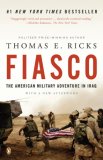Summary | Excerpt | Reviews | Beyond the Book | Readalikes | Genres & Themes | Author Bio

Critics' Opinion:
Readers' Opinion:
First Published:
Jul 2006, 496 pages
Paperback:
Jul 2007, 512 pages
 Book Reviewed by:
Book Reviewed by:
BookBrowse Review Team
Buy This Book
Operation Provide Comfort
There was one bright point for Wolfowitz in the muddled outcome of the 1991 war: the U.S.-led relief operation in northern Iraq. As it celebrated its swift triumph, the Bush administration grew increasingly embarrassed at seeing Saddam
Hussein’s relentless assault on the Kurds drive hordes of refugees into the snowy mountains along the Turkish-Iraqi border. The United States responded with a hastily improvised relief operation that gradually grew into a major effort, bringing tens of thousands of Kurds down from the mountains, and at first feeding and sheltering them, and later bringing them home. Largely conducted out of
public view, Operation Provide Comfort was historically significant in several ways. It was the U.S. military’s first major humanitarian relief operation after the
Cold War, and it brought home the point that with the Soviet rivalry gone, it would be far easier to use U.S. forces overseas, even in sensitive areas on or near former Eastern Bloc territory. It involved moving some Marine Corps forces hundreds
of miles inland in the Mideast, far from their traditional coastal areas of operation—a precursor of the way the Marines would be used in Afghanistan a decade later. It employed unmanned aerial vehicles to gather intelligence. In another wave of the future for the U.S. military establishment, it was extremely joint—that is, involving the Army,Marine Corps, Air Force, Navy, Special Operations
troops, and allied forces. But most significantly, it was the first major longterm U.S. military operation on Iraqi soil. And in that way it would come to provide Wolfowitz with a notion of how U.S. policy in Iraq might be redeemed after the messy end of the 1991 war. In retrospect, Provide Comfort also becomes striking because it brought together so many American military men who later
would play a role in the U.S. occupation of Iraq in 2003.
Provide Comfort began somewhat haphazardly, without clear strategic goals. It was initiated as an effort simply to keep Iraqi Kurds alive in the mountains, and so at first was seen just as a matter of air-dropping supplies for about ten days to
stranded refugees. Next came a plan to build tent camps to house those people. But United Nations officials counseled strongly against setting up refugee camps in Turkey for fear they would become like the Palestinian camps in Lebanon that never went away. So U.S. forces first tried to create a space back in Iraq where the
refugees could go, and ultimately decided simply to push back the Iraqi military sufficiently to permit the Kurds to return to their homes.
“And we carved out that area in the north,” recalled Anthony Zinni, then a
Marine brigadier general who was chief of staff of Provide Comfort. Once that last step had been taken, he said, it became clear that “we were saddling ourselves
with an open-ended commitment to protect them in that environment.”
Wolfowitz meets Zinni
Wolfowitz flew out to northern Iraq to see the operation. “We were pushing the Iraqis real hard,” then Army Lt. Gen. Jay Garner, the commander of the
operation, would recall. The leading edge of the U.S. push was a light infantry battalion commanded by an unusual Arabic-speaking lieutenant colonel named
John Abizaid, who in mid-2003 would become the commander of U.S. military operations in the Mideast. Abizaid was fighting what he would later call a “dynamic ‘war’ of maneuver.” He was operating aggressively but generally without shooting to carve out a safe area for the Kurds by moving around Iraqi army outposts. He also had the advantage of having U.S. Air Force warplanes circling overhead, ready to attack. Wary of having American troops behind them, with routes of retreat cut off by the planes overhead, the Iraqi forces would then fall
back and yield control of territory. “We moved our ground and air forces around the Iraqis in such a way that they could fight or leave—and they left,” Abizaid
said later.
Excerpted from Fiasco: The American Military Adventure in Iraq, (c) 2006 by Thomas E. Ricks. Reproduced with permission of the publisher, Penguin Press. All rights reserved.





The Funeral Cryer by Wenyan Lu
Debut novelist Wenyan Lu brings us this witty yet profound story about one woman's midlife reawakening in contemporary rural China.
Your guide toexceptional books
BookBrowse seeks out and recommends the best in contemporary fiction and nonfiction—books that not only engage and entertain but also deepen our understanding of ourselves and the world around us.